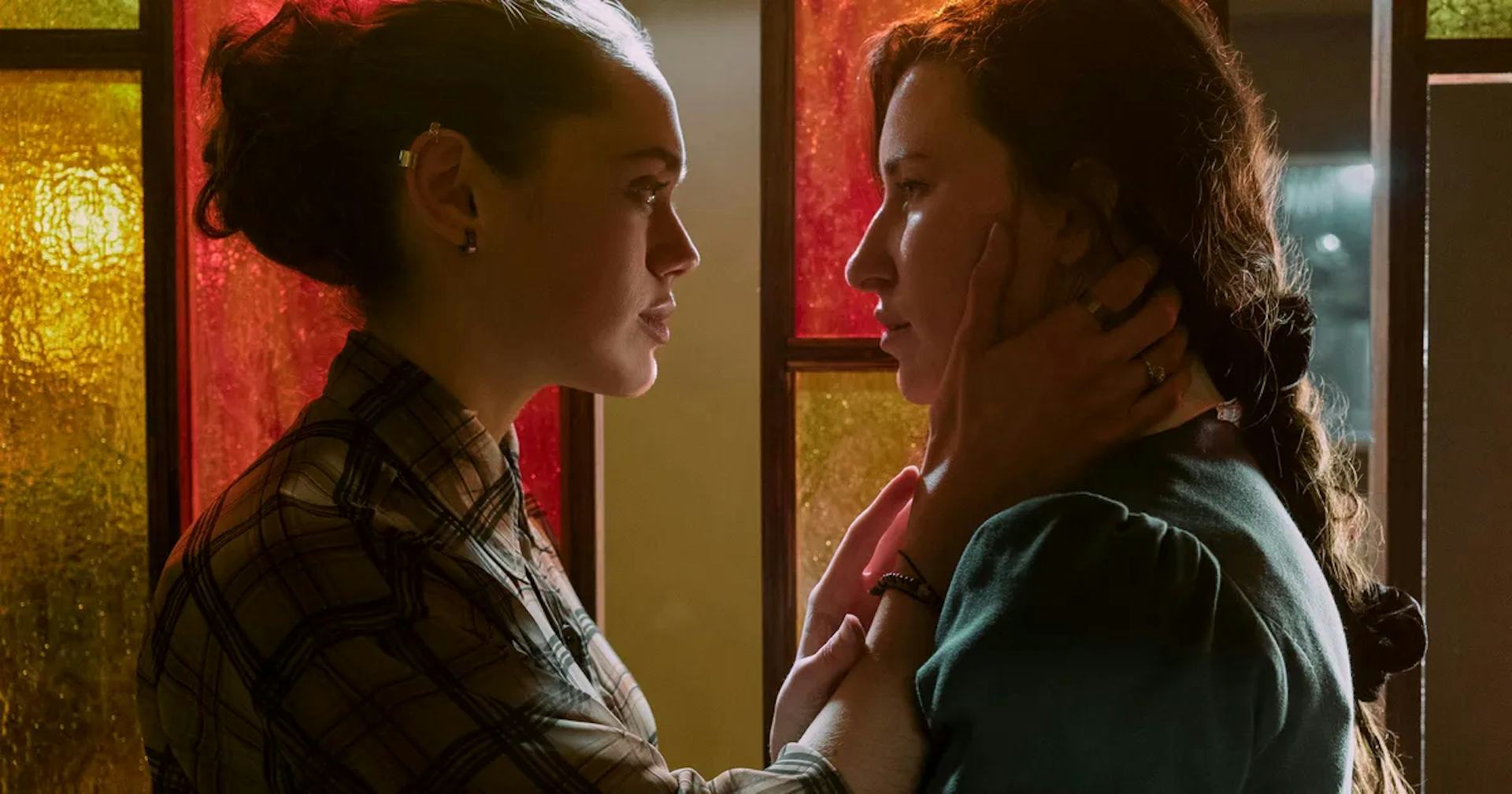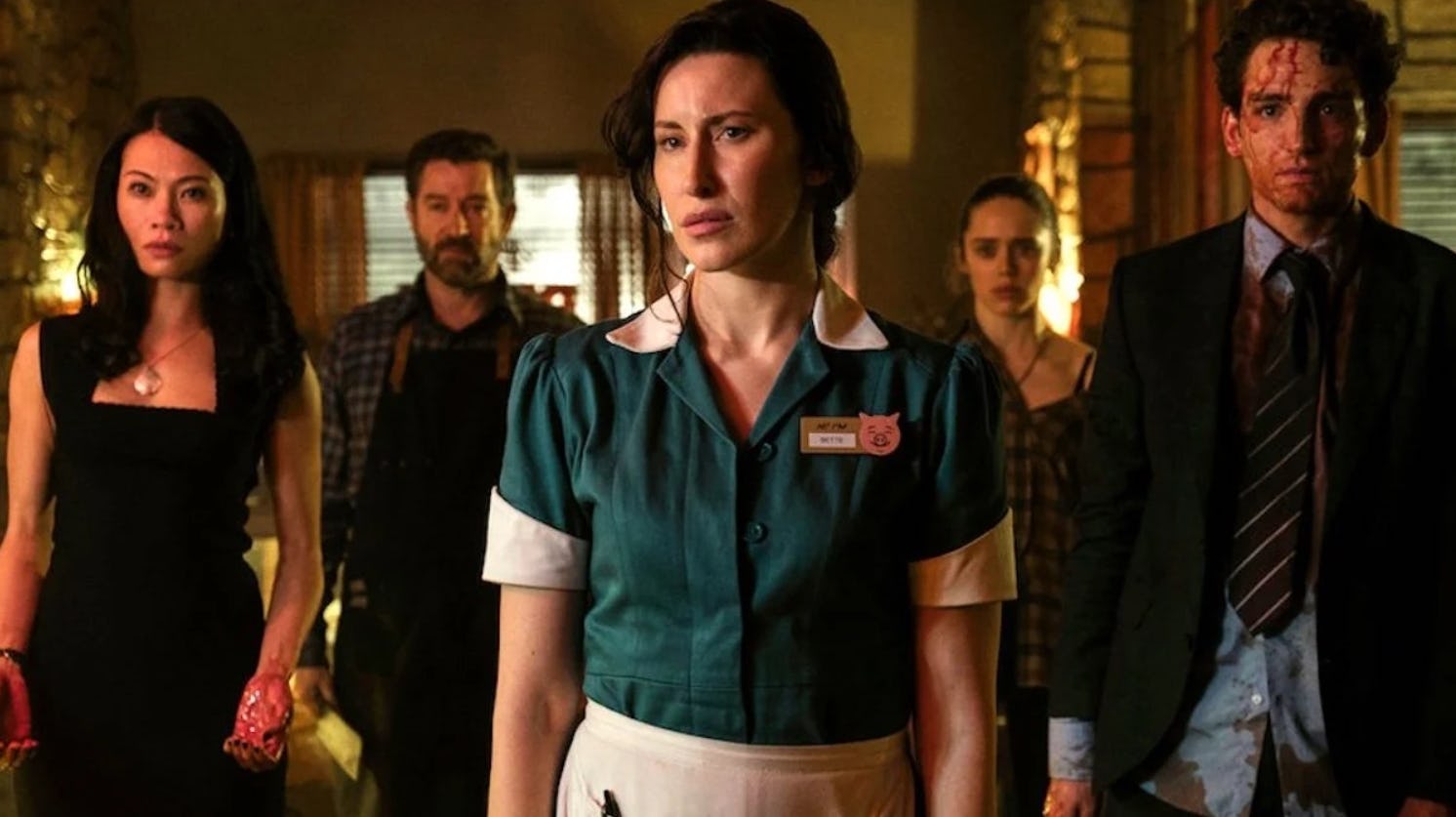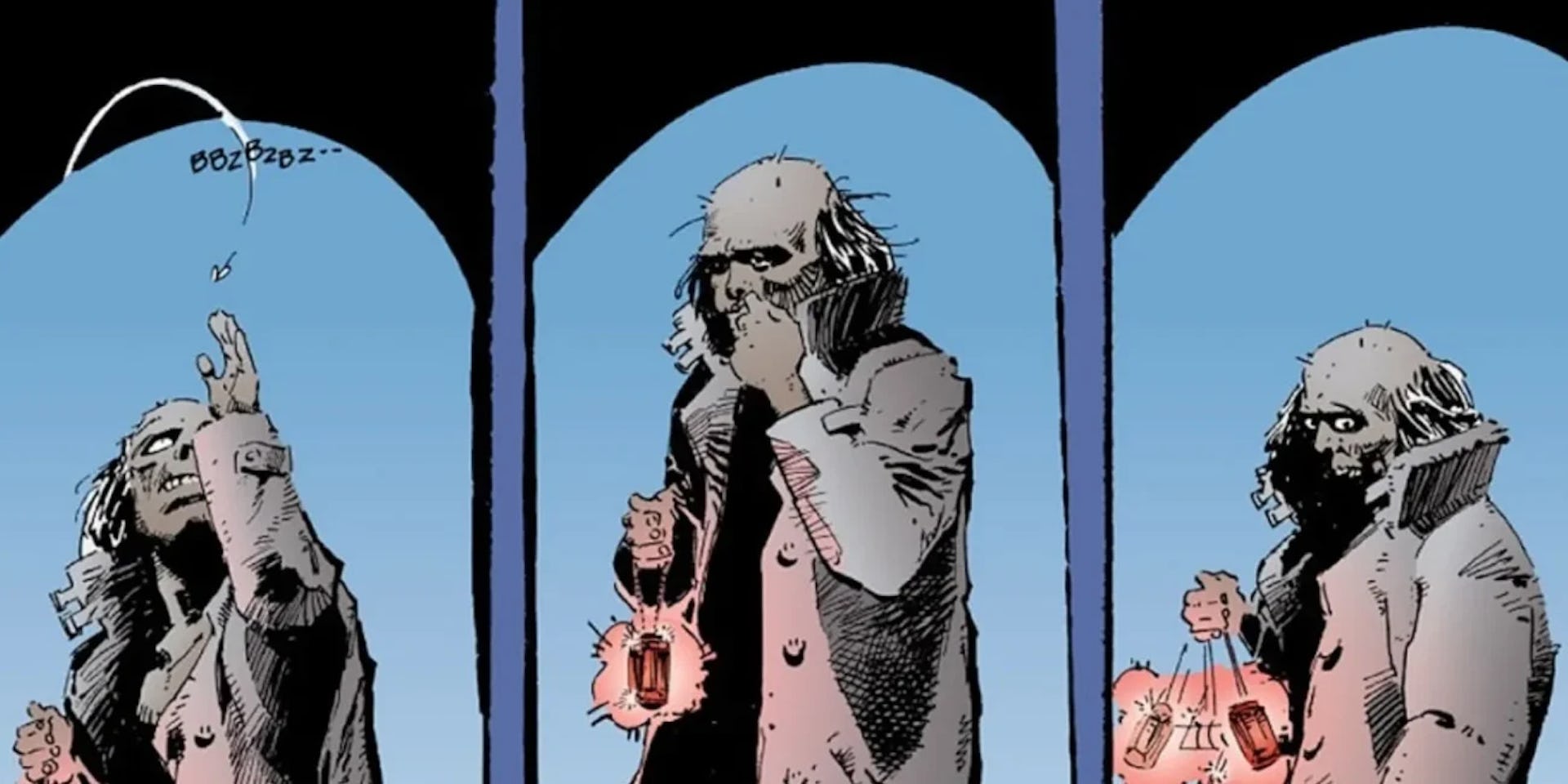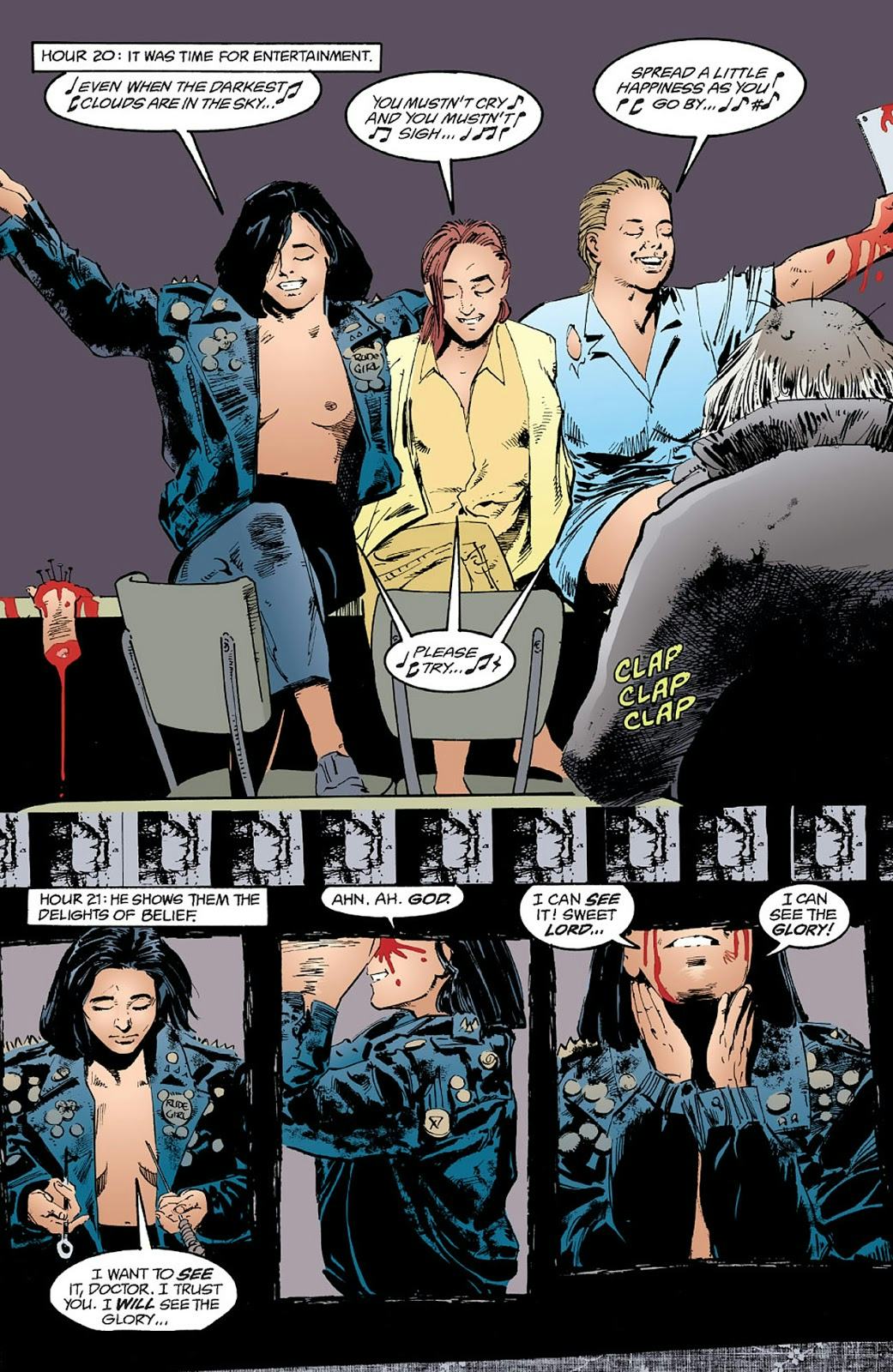
A quaint Delaware diner and its patrons had one eventful evening, and Harry Potter vet David Thewlis quietly watched the chaos and psychological trauma unfold while gorging on a tub of vanilla ice cream.
Such is the way of Netflix’s The Sandman, which, like its Neil Gaiman-written DC comics counterpart, doesn’t skimp out on the darkness of the dark fantasy.
In Episode 5, titled “24/7,” a diner employee with dreams of becoming a writer is coerced into wishing for a world where everyone says and does whatever they desire without being inhibited by social conventions or morality. The story largely unfolds the same way it did in the comic books, but there are a few key differences. Spoilers for Episode 5 of The Sandman ahead.
Netflix’s take on “24 Hours”
This wish, fulfilled with the aid of Morpheus’ ruby after it fell into the hands of DC comics supervillain John Dee (Thewlis), carries far more heft than Bette Munroe (Emma Duncan) can fathom. The waitress and her co-workers and patrons reveal passions in themselves they never knew existed, and wind up brutalizing each other as their masks drop.

Judy (Daisy Head) hits her girlfriend, Donna, who she wishes was dead, and she makes out with Bette (Emma Duncan), who she finds both pathetic and irresistible. Garry (James Udom) can’t stand his controlling boss and wife, Kate (Lourdes Faberes). Marsh (Steven Brand) divulges the deceitful ways he explores his sexuality with Bette’s college-aged son, and Mark (Laurie Davidson) just wants to be dominated by someone who’s far better than he is at adulting. After indulging in their carnal cravings, the patrons go feral. Throats are slashed, limbs are amputated, hands are nailed, and, finally, eyes are stabbed.
The episode as a whole is a slow-burn psychological thriller, but the last 10 minutes are a full-blown slasher that revs up the gore and body horror. Viewers unfamiliar with the comics are in a tizzy over the bone-chilling chapter, with The Guardian even deeming Episode 5 “2022’s single greatest hour of TV drama.”
However, fans who had already read the source material, issue No. 6 of The Sandman (“24 Hours”), were less shocked.
What was changed from the original comic?
Many of the differences between the comic book and the Netflix adaptation are minor. Some characters' ages have been changed, and the diner’s cast has been diversified. Three changes, however, are notable.
- John Dee isn’t a decrepit, zombified supervillain. In the comics, John Dee’s look is far more disgusting. The more he exploits Morpheus’ ruby to make people uphold his “honesty is best” policy, the more he’s visually stripped of his humanity. This Dee is more relatable physically, which makes it easier to at least comprehend his vision of a world without lies. Also, the Netflix adaptation has removed many of the connections to DC Comics that were imposed on the comic. Dee no longer has any connection to his supervillain alter ego, Doctor Destiny, who had brushes with the Justice League and befriended Scarecrow in Arkham Asylum.

- The nightmares are a little tamer. Because of time constraints, the Netflix show can’t get into as many of the ethical and mental complexities of Bette’s unlucky customers. In the comic, the 24 disturbing hours are spread out over 24 pages that catalog their gruesome downward spiral and explore the motivations for each kiss and kill. Characters like Marsh and Garry, who don’t get much detail on the show, are far more nefarious and perverse in the source material, and each commits brutal acts of sexual violence. Still, the psychological and physical violence in the Netflix adaptation of “24 Hours” is tough to stomach in its own right.
- Bette stabs her eyes out, not Judy. In both the comics and series, Judy is best friends with Rose Walker (Kyo Ra). In the comic, Judy is the climatic final victim of the diner drama, and she goes out via the unnerving method of running skewers through her own eyes as she claims to understand Dee’s vision of humanity. While this ups the ante on Rose’s prominent role as a dream vortex, it’s Bette who takes the final and ultimate plunge in the Netflix series, likely to mirror the beginning of the episode.








